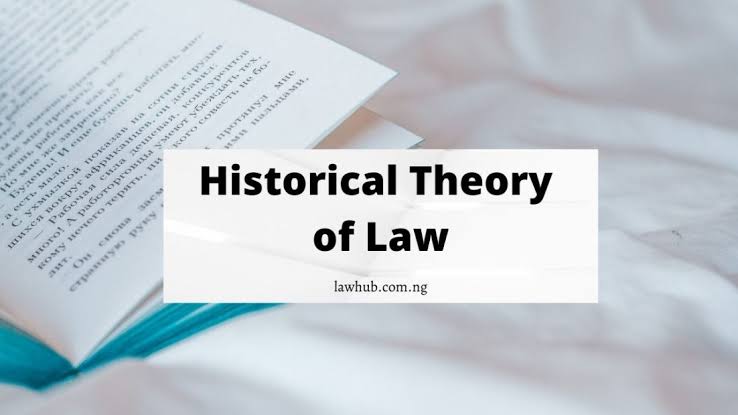German Historical School of Jurisprudence
The Historical theory of law argues and states that law should be a product of the custom of the society.
As we can simply derive from the meaning of the word ‘history’ – the Historical school of jurisprudence is of the opinion that law should be a restatement of the history of the people.
The leader of this school was Friedrich Karl von Savigny, a German jurist and aristocrat.
The notion of the Natural Law School was spreading widely in the 17th and 18th century. Specifically in Europe, going so wide in overthrowing the monarchs.
And what more, creating egalitarian societies. Nevertheless, Savigny, being an aristocrat, was obviously interested in maintaining the status quo.
Friedrich Karl von Savigny
Friedrich Karl von Savigny (1776 – 1861) was a German jurist. He founded the German Historical School of Jurisprudence.
See also: Positive Theory of Law
This school holds the belief that the way to interpret and apply a law is by analysing its historical origin.
Savigny was born in Frankfurt am Main.
He started teaching at the University of Marburg, and was a professor at the University of Berlin from 1810 – 1842.
The tenets of the Historical school of Jurisprudence was announced by Friedrich Karl von Savigny in his work Vom Beruf unserer Zeit für Gesetzgebung und Rechtswissenschaft (On the Vocation of Our Age for Legislation and Jurisprudence, 1814, 2nd revised edition 1828) and also in an introductory article to the Zeitschrift für geschichtliche Rechtswissenschaft (Journal of Historical Jurisprudence, 1815-1850).
The Historical Theory of Law
According to the dictates of this theory, there is something called Volkgeist – the spirit of the people.
The theory believes that this binds the people of a society together and differentiates them from any other people.
For example, a German has a ‘National Spirit’.
This makes him think like a German, and not like a French, and vice versa.
In like manner, a spirit makes a Nigerian think like a Nigerian, and not like an American.
Apparently, this spirit is a product of the history, custom and life-system of the people.
Therefore, to a Historical law theorist, for a law to be valid, it must be in alignment with the history and custom of the people – which is their spirit.
Arguments for the Historical Theory of Law
A relatively large percentage of the people in a society know their custom.
Therefore, if laws are made according to these customs, the knowledge of law becomes relatively easy.
Based on the point raised above, it also becomes comparatively easy for the people of a society to keep the law. In a way, they can avoid harassment, unlawful practices, or dictatorship.
The points raised supra will give room for a faster development of the society. It will foster economic and political growth.
Arguments against the Historical Theory of Law
One good feature of law is dynamics. This means that law can be changed to suit the prevalent situation in the society.
Unfortunately, since customs are developed overtime, mostly unwritten, and relatively rigid, it is very hard or impossible to change them.
Also, the Historical school of jurisprudence validates a law based on its uniformity with the history of the people, rather than fairness, goodness, and justice.
So, a law can be unjust and tyrannical and still be valid, just because it supports the custom.
How can a theory be based on the assumption that the custom of a people is fair and just?
But the Historical theory of law does. And this is not really the case in real-life practice.
See also: Law definition and meaning
There are some customary rules and regulations that have been used to subject some class of people to the state of servitude. Others have prejudice women in inheritance and labour matters.
More arguments against Savigny’s Historical School of Jurisprudence
Moreover, having laws channelled by the past may hinder the establishment of some desirable radical reforms.
Mind you, the enforcement of these reforms may possess the capacity to transform the society for the better. So much progress may be hindered by following the dictates of the Historical law school.
Furthermore, what should be done in the case of cultural diversities? When there are more than one history or custom pattern in a society, which should the law follow?
In a country like Nigeria, there are about 250 ethnic groups. Following the dictates of the Historical law school is largely impractical.
Which of the customs should our laws follow? Or what happens when the customs clash?
Conclusion
The theory of the Historical School of Jurisprudence is a theory to learn. It stresses the importance of putting the history and custom of people into the making of laws.
And in this regards, it possess some advantages. Nevertheless, it advantages can also turn around to becomes its disadvantages.
In all, I think the definition of the Historical jurist is a weak point to view the definition and validity of law. Nonetheless, it is a strikingly nice one.
References:
‘Introduction to Nigerian Legal Method’ – Edited by Abiola Sanni
“Friedrich Karl von Savigny.” Microsoft® Encarta® 2009 [DVD]. Redmond, WA: Microsoft Corporation, 2008.


Leave a Reply